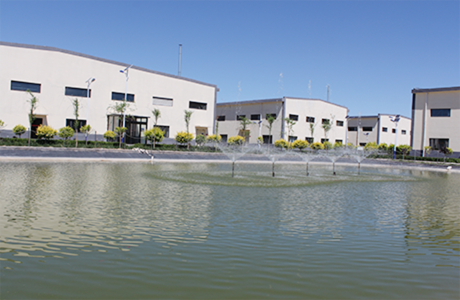- Afrikaans
- Albanian
- Amharic
- Arabic
- Armenian
- Azerbaijani
- Basque
- Belarusian
- Bengali
- Bosnian
- Bulgarian
- Catalan
- Cebuano
- Corsican
- Croatian
- Czech
- Danish
- Dutch
- English
- Esperanto
- Estonian
- Finnish
- French
- Frisian
- Galician
- Georgian
- German
- Greek
- Gujarati
- Haitian Creole
- hausa
- hawaiian
- Hebrew
- Hindi
- Miao
- Hungarian
- Icelandic
- igbo
- Indonesian
- irish
- Italian
- Japanese
- Javanese
- Kannada
- kazakh
- Khmer
- Rwandese
- Korean
- Kurdish
- Kyrgyz
- Lao
- Latin
- Latvian
- Lithuanian
- Luxembourgish
- Macedonian
- Malgashi
- Malay
- Malayalam
- Maltese
- Maori
- Marathi
- Mongolian
- Myanmar
- Nepali
- Norwegian
- Norwegian
- Occitan
- Pashto
- Persian
- Polish
- Portuguese
- Punjabi
- Romanian
- Russian
- Samoan
- Scottish Gaelic
- Serbian
- Sesotho
- Shona
- Sindhi
- Sinhala
- Slovak
- Slovenian
- Somali
- Spanish
- Sundanese
- Swahili
- Swedish
- Tagalog
- Tajik
- Tamil
- Tatar
- Telugu
- Thai
- Turkish
- Turkmen
- Ukrainian
- Urdu
- Uighur
- Uzbek
- Vietnamese
- Welsh
- Bantu
- Yiddish
- Yoruba
- Zulu
10 月 . 09, 2024 12:56 Back to list
tylosin tartrate for poultry
Tylosin Tartrate for Poultry An Overview
Tylosin tartrate is a macrolide antibiotic that holds significant importance in veterinary medicine, particularly in the poultry industry. Developed in the 1950s, this compound is derived from the bacterium *Streptomyces fradiae* and has since been used to promote growth, enhance feed efficiency, and control specific infectious diseases in poultry. The use of tylosin tartrate in poultry is a subject of considerable interest due to its efficacy, safety profile, and the growing concerns surrounding antibiotic resistance.
Applications in Poultry
Tylosin tartrate is primarily used to treat and prevent certain bacterial infections in poultry, including respiratory diseases and enteritis. It is effective against a variety of Gram-positive bacteria, which makes it a valuable tool for controlling diseases such as necrotic enteritis, a serious condition caused by *Clostridium perfringens* that can lead to significant economic losses in broiler chickens. By administering tylosin, farmers can mitigate the effects of these infections, leading to healthier birds and improved productivity.
Additionally, tylosin tartrate is often added to feed as a growth promoter. Research has shown that tylosin not only helps control disease but also improves feed conversion ratios. This means that birds gain weight more efficiently, resulting in better overall growth performance. Consequently, many poultry producers incorporate tylosin into their feeding regimes, particularly in production systems aiming for high efficiency and rapid turnover.
Mechanism of Action
The mechanism of action of tylosin involves inhibiting protein synthesis in bacterial cells. By binding to the 50S ribosomal subunit, tylosin disrupts the production of essential proteins, leading to bacterial cell death. This action makes it effective against a specific range of pathogenic bacteria without severely affecting the beneficial gut microbiota. This selective antibacterial activity contributes to its safety profile, as it minimizes disruptions to the birds’ internal bacterial communities.
tylosin tartrate for poultry

Safety and Regulatory Considerations
The use of tylosin tartrate in poultry is generally considered safe, with a low risk of adverse effects when used according to recommended guidelines. However, as with any antibiotic, there are concerns regarding the potential for residual effects in poultry products and the development of antibiotic resistance. Regulatory agencies around the world, such as the U.S. Food and Drug Administration (FDA) and the European Medicines Agency (EMA), have established strict withdrawal periods to ensure that minimal residues remain in poultry meat and eggs at the time of consumption.
The growing scrutiny on antibiotic use in animal agriculture has prompted a shift towards more responsible practices. Poultry producers are encouraged to adopt a judicious approach, using tylosin and other antibiotics only when necessary and in conjunction with good management practices to prevent diseases. This includes biosecurity measures, vaccination programs, and proper nutrition, which can reduce the reliance on antibiotics over time.
The Future of Tylosin in Poultry
As the poultry industry faces increasing pressures to produce safe, healthy food while addressing environmental sustainability and animal welfare concerns, the role of tylosin tartrate may evolve. Ongoing research continues to explore alternatives to antibiotics, including probiotics, prebiotics, and other non-antibiotic growth promoters. Nevertheless, tylosin remains an integral component of poultry health management strategies, particularly in scenarios where bacterial infections threaten flock health.
In conclusion, tylosin tartrate plays a pivotal role in poultry production by promoting growth, enhancing feed efficiency, and controlling bacterial infections. While its use is accompanied by challenges, particularly regarding antibiotic resistance, responsible management and adherence to regulatory guidelines can help mitigate these concerns. As the industry progresses, tylosin will likely continue to be an essential tool for poultry producers navigating the complexities of modern agricultural demands.
-
The Power of Radix Isatidis Extract for Your Health and Wellness
NewsOct.29,2024
-
Neomycin Sulfate Soluble Powder: A Versatile Solution for Pet Health
NewsOct.29,2024
-
Lincomycin Hydrochloride Soluble Powder – The Essential Solution
NewsOct.29,2024
-
Garamycin Gentamicin Sulfate for Effective Infection Control
NewsOct.29,2024
-
Doxycycline Hyclate Soluble Powder: Your Antibiotic Needs
NewsOct.29,2024
-
Tilmicosin Premix: The Ultimate Solution for Poultry Health
NewsOct.29,2024













